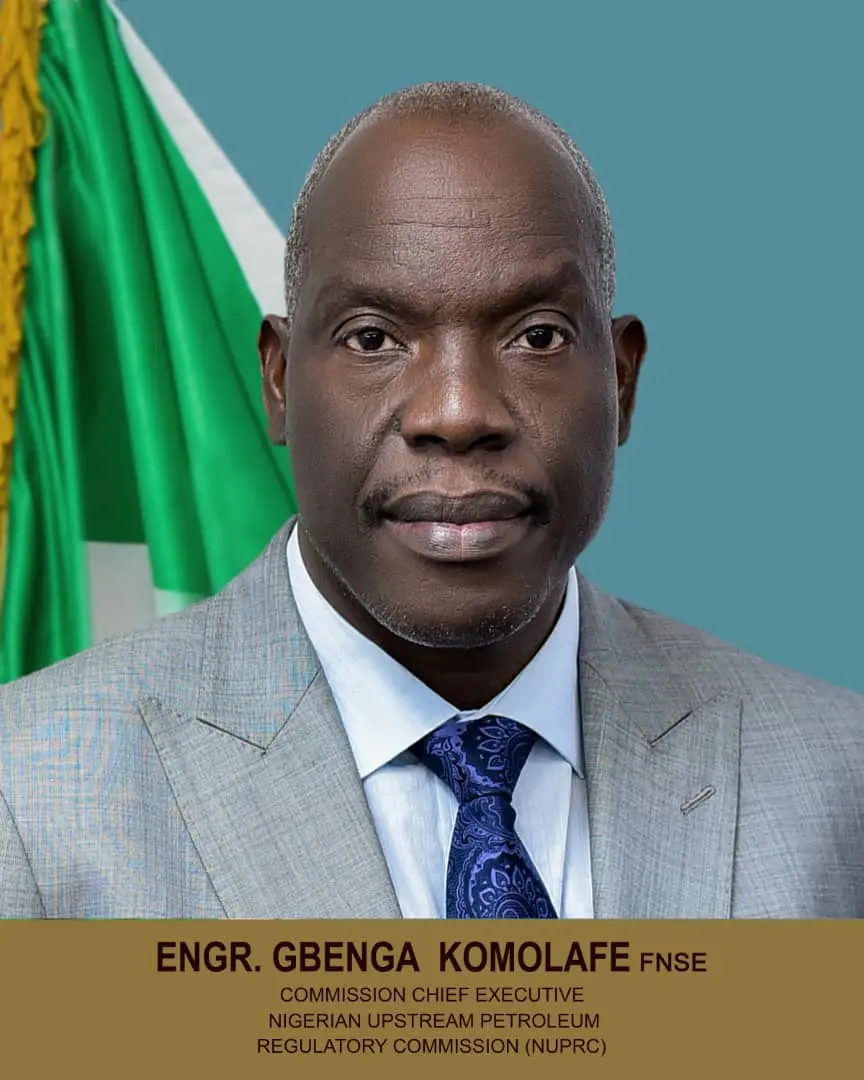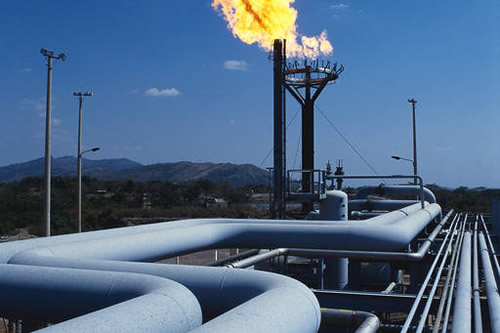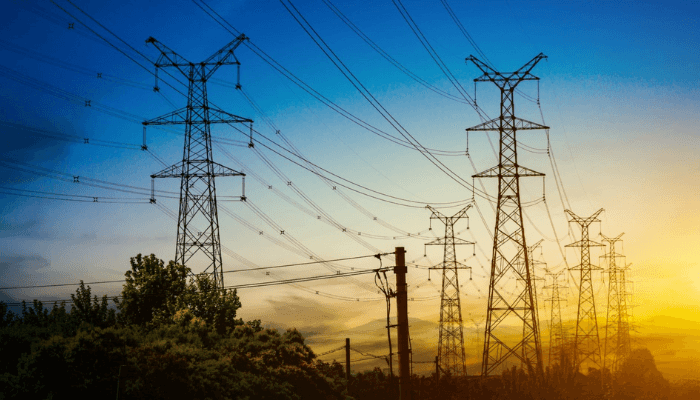The Federal Government has re-engineered Nigeria’s oil bidding process with emphasis on production bonuses, targeted at enabling investors to channel their scarce resources into immediate development and early production.
I want people to remember the Emirate as a symbol of dignity and peace —Film maker, Zainab Bayero0:18 / 1:00
keep watching
In the past, emphasis was placed on the high signature bonus, a development that discouraged local and foreign investors from investing while also scuttling early development and commencement of oil and gas production as well as the unlocking of many multiplier effects.
But under the new arrangement, the industry regulator, Nigerian Upstream Petroleum Regulatory Commission, NUPRC, has removed entry barriers, including the slashing of the signature bonus – a single, non-recoverable lump sum payment made upfront by oil companies to the government for the rights to develop an oil block commercially after successfully winning in the license bid round – to only $10 million for deepwater assets and $7 million for shallow water and onshore assets.
The strategy aims at growing oil and gas production, enhancing Nigerian Content Development, attracting Foreign Direct Investment, contributing to long-term global energy sufficiency, expanding opportunities for gas utilization, and creating employment opportunities while adding value to government and investors.
According to experts, the development illustrates the sensitivity of the Commission to developments around the world, especially the sustainable rise in Capital Expenditure, CAPEX, going into funding renewables in the spirit of the global energy transition.
They said it further showed its accurate comprehension of trends in other oil and gas climes; where the governments have drastically reduced signature bonus to attract investors and financiers into their industries.
Available data indicate that in the Middle East and North Africa, signature bonus currently stands at about $10 million while Thailand and Indonesia have about $3 million (minimum) and N1.5 million, respectively, meaning that Nigeria’s oil and gas landscape is now in alignment with the rest of the world.
Besides, the current bidding also opens a window for investors to bid for the 2022 blocks based on the current incentivized terms instead of paying the previous $50 million.
It was gathered that Nigeria will be able to complete many projects, leading to the creation of many multiplier effects, including production capacity, employment, contracts, community development, local content and gas-to-power, thus providing more energy to households and businesses nationwide.
Related News
Heatwave: Hajj pilgrims’ death toll exceeds 1000 in Saudi Arabia
Nigerian Newspapers: Why governors, others are foot-dragging over minimum wage
After North Korea, Putin lauds ties with Vietnam on state visit
Also, it was further gathered that Nigeria will be able to generate substantial revenue in the form of production bonus when investors begin their oil and gas production.
Commenting on the development, the Executive Chairman, African Energy Chamber, NJ Ayuk, said: “Nigeria has established a robust framework that is set to attract foreign exploration companies with modernised fiscals that are competitive for deepwater exploration. We the AEC believe the most lucrative balancing point between creating a welcoming environment for international companies and achieving Nigeria’s own national goals is important.
“Key to this bidding round will be the role of independents and indigenous players when it comes to exploration. The bidding round also paves the way for gas monetisation that will bring amazing benefits to Nigeria and also international markets.”
Similarly, the Executive Director, Emmanuel Egbogah Foundation for Petroleum, Prof. Wumi Iledare, said: “A high signature bonus is regressive. It does make a petroleum province with a high signature bonus less attractive.”
On his part, the National President, Oil and Gas Service Providers Association of Nigeria, OGSPAN, Mazi Colman Obasi, said: “Investors need a conducive environment to put their money. Once the right environment exists, foreign capital will begin to flow in.”
However, speaking at the recent pre-bidding conference in Lagos, the Commission Executive, NUPRC, Engr. Gbenga Komolafe, said: “A review of Welligence Energy Analytics reports on Licensing rounds across the globe including Brazil, Guyana, Angola, Middle East, North Africa, SouthEast Asia, etc, revealed that the era of huge front-loaded signature bonuses is over.
“Accordingly, Nigeria under President Bola Ahmed Tinubu, as the Minster of Petroleum Resources has proactively and intuitively vacated barrier to entry for investment in exploration blocks being offered, in both the 2022 deep offshore bid round and the 2024 licensing round, in line with international best practices.”
He said: “President Bola Ahmed Tinubu and Minister of Petroleum Resources, Nigeria have embarked on a transformative agenda that aligns with the most stringent global standards and commitments. The recent Presidential Executive Orders issued in March this year, aimed at improving the efficiency and attractiveness of Nigeria’s oil and gas sector, were generously targeted to incentivize oil and gas development, introduced measures to balance the implementation of Nigerian Oil and Gas Industry Content Development Act, 2010 to ensure that oil and gas development is not hindered by local content bottlenecks. The Executive Orders also include directives on the reduction of contracting costs and timelines to enhance the global competitiveness of our oil and gas industry and achieve a higher rate of return on oil and gas investments.
“Nigeria is endowed with abundance of Crude Oil and Condensate Reserves and of Natural Gas Reserves representing above 30% and 33% respectively of the entire Oil and Gas reserves in Africa aside abundant mix of other renewable energy resources. In a bid to exploit and optimize these abundant Hydrocarbon resources, Section 7(t) of the Petroleum Industry Act (PIA) empowers the NUPRC, the Industry Regulator to conduct bid rounds for the award of PPLs and PMLs under the Act and applicable Regulations.
“It is on this premise that the Federal Government of Nigeria through the NUPRC recently announced the commencement of the 2024 Licensing Round both in-country and outside the shores of the nation. It would be recalled that we commenced the announcement at the maiden edition of the NEITI Dialogue Session, 2024, where the bid processes were thoroughly interrogated by civil society and the media.
“This was subsequently followed by the announcement of the commencement of the bid round at the 2024 OTC in Houston, the roadshow in Miami organized by Zeste Advisory, African Energies Summit in London organized by Frontier Network and Invest in Africa Energy Summit in Paris organized by Energy Capital Power. The Commission aims to project and attract robust local and foreign investors who will be participating in the bid exercise.”
He also said: “The NUPRC on behalf of the Federal Republic of Nigeria is committed to conducting the licensing round in a fair, competitive and transparent manner and ensuring a level playing field for both indigenous and international investors. Our approach is underpinned by the robust legal framework of the Petroleum Industry Act 2021(PIA), which ensures compliance with best practices to boost investors’ confidence.





